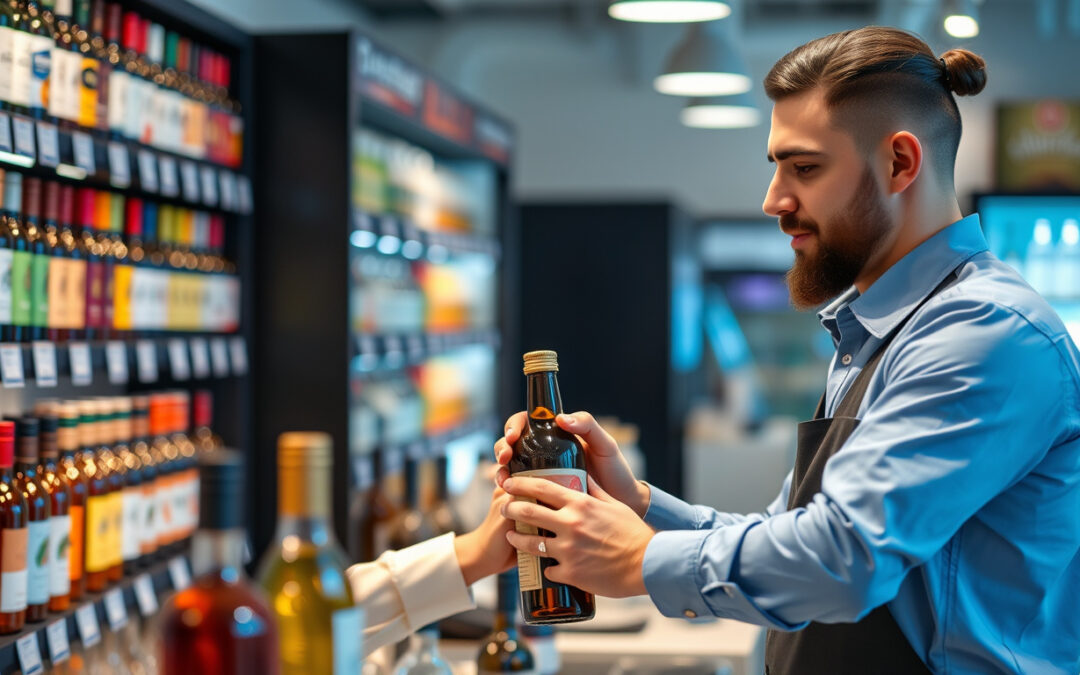Alcohol transaction training matters. It trains retail staff. It trains servers. They handle alcohol sales. The training teaches legal rules. The training teaches safe methods. It keeps businesses safe from legal risks. It makes communities safer. This article shares simple tips for alcohol training. It helps retail and hospitality workers stay compliant and responsible.
Why Alcohol Transaction Training Matters
Alcohol transaction training gives clear skills. It equips retailers and servers. They learn to sell alcohol well. They learn to serve responsibly. They study legal rules. They learn fake ID signals. They check age through ID. They know when to stop service. This training stops underage sales. It stops problems from intoxication. It also stops fines. Many places require this training. The law makes it essential. Compliance keeps your business safe. It helps build safe communities. Knowing the laws is key for anyone selling alcohol.
Key Elements of Effective Alcohol Transaction Training
When you design or choose training, add these parts:
1. Understanding Legal Requirements
Begin with the law. Review federal rules. Review state rules. Review local rules. Learn the legal drinking age. Check which IDs work. Note which sales are not allowed. Note sales to minors. Note sales to intoxicated people. Know the penalties. Knowing the law gives staff strength.
2. Identification Verification Techniques
Training teaches age checks. It shows how to read IDs. It stresses security features. It points out fake IDs. It shows how to scan IDs. Accurate ID checks stop underage sales.
3. Recognizing Signs of Intoxication
Servers learn to see signs. They note slurred speech. They spot unsteady steps. They watch for aggressive acts. They see signs when focus fails. They note poor judgment. When signs appear, service stops.

4. Refusal of Service and Handling Difficult Situations
Training gives refusal skills. It teaches clear talk. It shows de-escalation steps. It tells when to call managers. It teaches safe handling of tough cases. This skill stops conflicts.
5. Documentation and Reporting Procedures
Record keeping is vital. Staff learn what to write down. They learn how to keep records. They learn which paths to report. This keeps the system clear.
6. Customer Service Best Practices
Good service eases rules. Staff keep a friendly tone. They talk clearly about rules. They offer choices like non-alcohol drinks. This mix makes service both safe and warm.
Practical Tips for Delivering Alcohol Transaction Training
To boost training, try these methods:
Use Interactive Learning Methods
Role-play builds skills. Simulated ID checks help memory. Active learning wins over passive learning.
Schedule Regular Refresher Courses
Laws change often. Regular updates keep skills fresh. Annual training helps staff stay sharp.
Incorporate Real-World Scenarios
Real cases guide practice. Staff face common issues. They learn to handle tough customers.
Engage Licensing Authorities and Professionals
Invite law experts. Invite regulators. They add real insights. They reinforce the training points.
Alcohol Transaction Training Checklist
- Review current alcohol laws in your area.
- Train staff to check and verify IDs.
- Teach signs of intoxication.
- Practice refusals and calm responses.
- Explain record keeping and reporting.
- Stress customer service and compliance.
- Do role-plays and exercises.
- Plan regular updates and tests.
Frequently Asked Questions about Alcohol Transaction Training
What is alcohol transaction training and why is it important?
It teaches how to sell and serve alcohol safely. It follows the law. It stops underage and unsafe sales. It keeps business and customers safe.
How often should alcohol transaction training be conducted?
Train new hires at first. Then update regularly. At least once a year, or when laws change.
Can alcohol transaction training help prevent legal penalties?
Yes. Training helps staff follow the rules. It stops mistakes. It stops fines, suspensions, or other penalties.
Responsible alcohol sales benefit everyone. Business owners, customers, and communities win. The clear training above builds safe, compliant workplaces. Use detailed guides from groups like the National Restaurant Association. Their resources help boost your training programs and certification.


